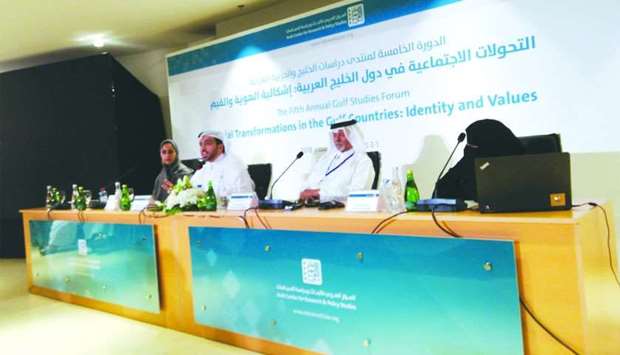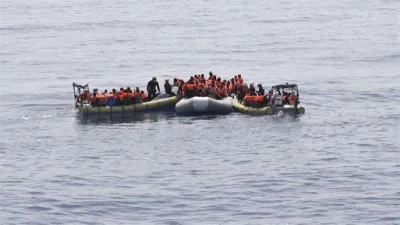Although there are strong and deeply-rooted bonds and family relationships among the GCC people, the blockade, imposed on Qatar since June 5, 2017 by Saudi Arabia, the UAE, Bahrain and Egypt, has created serious psychological and social consequences that adversely influenced such relationships, a panel discussion has pointed out.
The 5th Annual Gulf Studies Forum "Identity and social transformation in the Arab states" organised by the Arab Center for Research and Policy Studies on Sunday discussed the impact of the blockade on Qatari identity.
The panel discussion was chaired by Dr Mohamed al-Missfr, Professor of Political Science at Qatar University (QU).
Other members of the panel were Munira al-Rumaihi, Sociology Professor at QU; Maryam al-Kuwari, PhD student at the Institute of Arabic and Islamic Studies, University of Exeter; and Mohamed al-Hashimi, PhD student at Brunel University.
Al-Rumaihi talked about the impact of the blockade on the Qatari identity.
She has conducted a research on the writing of a number of prominent Qatari writers throughout the blockade period discussing related issues, in addition to reviewing a the opinions of sample of young Qatari people on the same issue.
She said that many families across Qatar, Bahrain, Saudi Arabia, and the UAE, have suffered greatly due to the aggressive measures taken by the blockading countries against Qatar and Qataris, banning them from their right to direct travel and maintaining close relations with their family members, including even spouses.
She stressed that the blockade has further pushed Qataris to stick together to their common culture, unity and national identity, which were displayed clearly in their solidarity and display of love to His Highness the Amir, Sheikh Tamim bin Hamad al-Thani.
Al-Rumaihi said that more than half of the QU students still identify themselves as GCC citizens and said that they would not like to give up this, while the others expressed distrust of any potential GCC unity.
Al-Kuwari talked about the use of Shela (local colloquial) poetry in the Gulf crisis and its impact on Qatar's national character.
She pointed out that popular GCC singers took part in the ongoing crisis with various songs written to promote different views.
While the songs produced by the blockading countries tried to send threatening messages to Qatar and in some cases used abusive phrases against the country and its leadership, the songs produced in Qatar tried to send a message of openness dialogue and expressed Qatar's keenness to maintain the unity and continuity of the GCC.
Other songs that were produced in Qatar throughout the crisis tried to further promote the national identity and expressed pride in the country and its leadership, which clearly indicates the use of arts and poetry in politics.
Al-Hashimi talked about 'The shared Gulf identity and the crisis: Impacts and repercussions'.
He expanded on the history of the creation of the GCC Council and how fragile it has been throughout such crisis.
He also expressed the views of some young people that the GCC Council has little chances of survival.
However, all parties agreed that more should be done to maintain and reform it.
The two-day forum concluded on Sunday and in parallel focused on the Gulf-US relations with the participation of prominent researchers and experts in the field.



